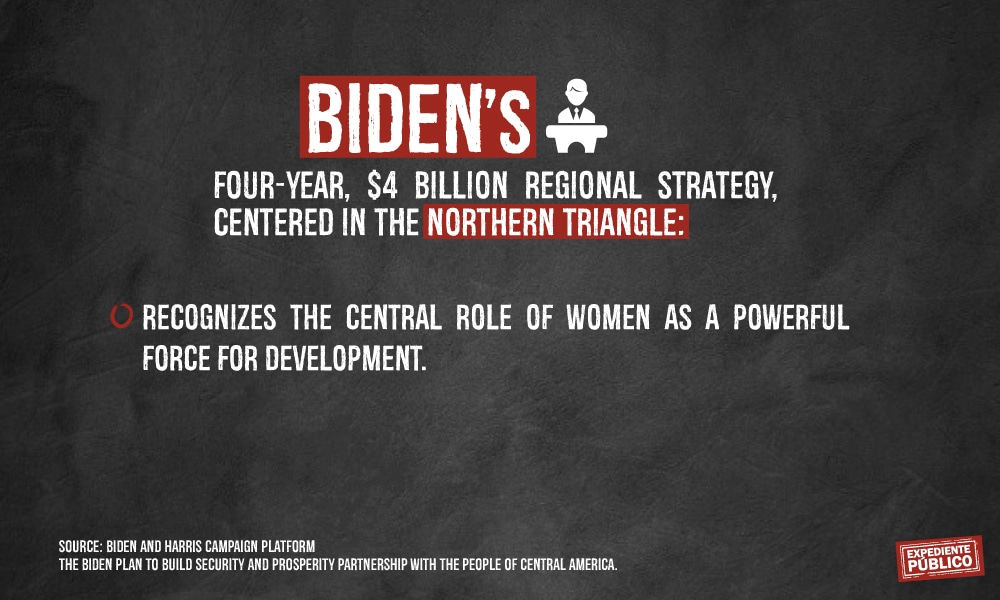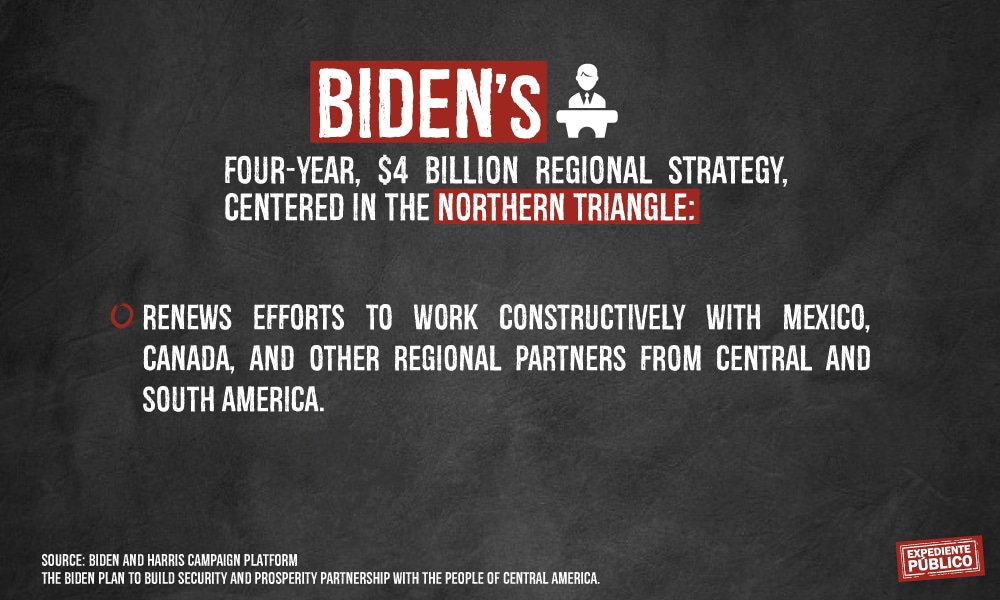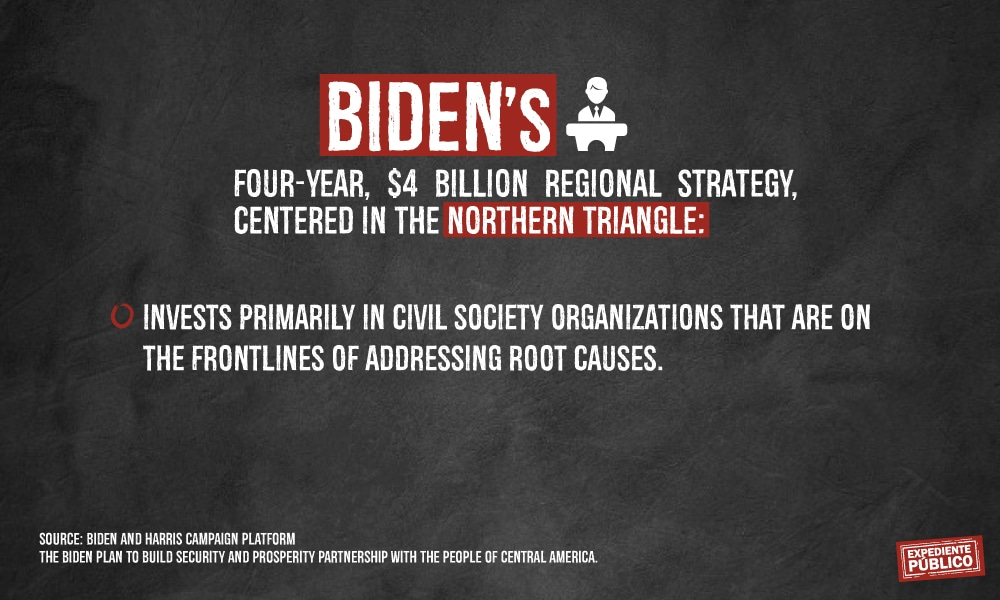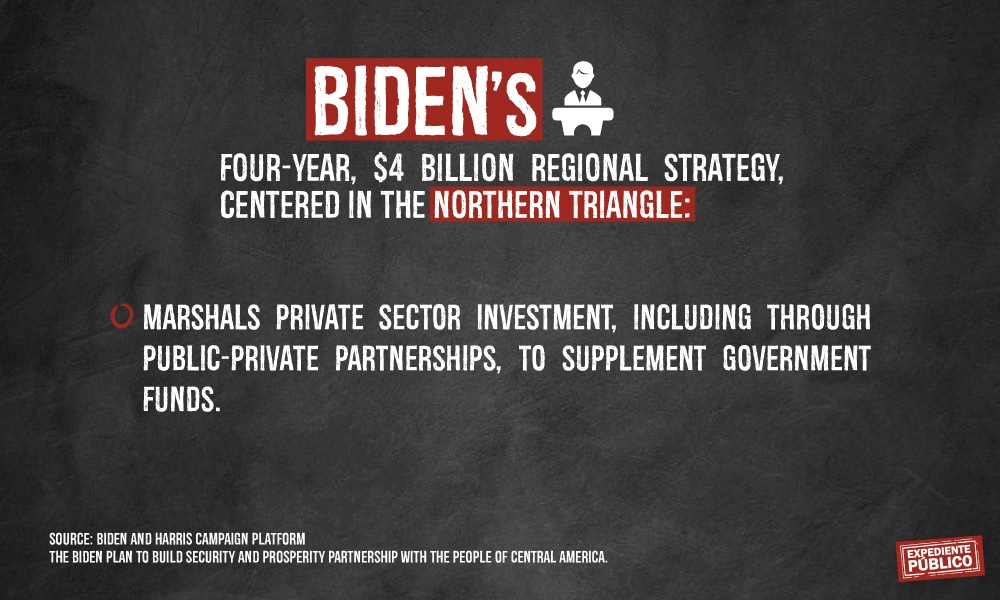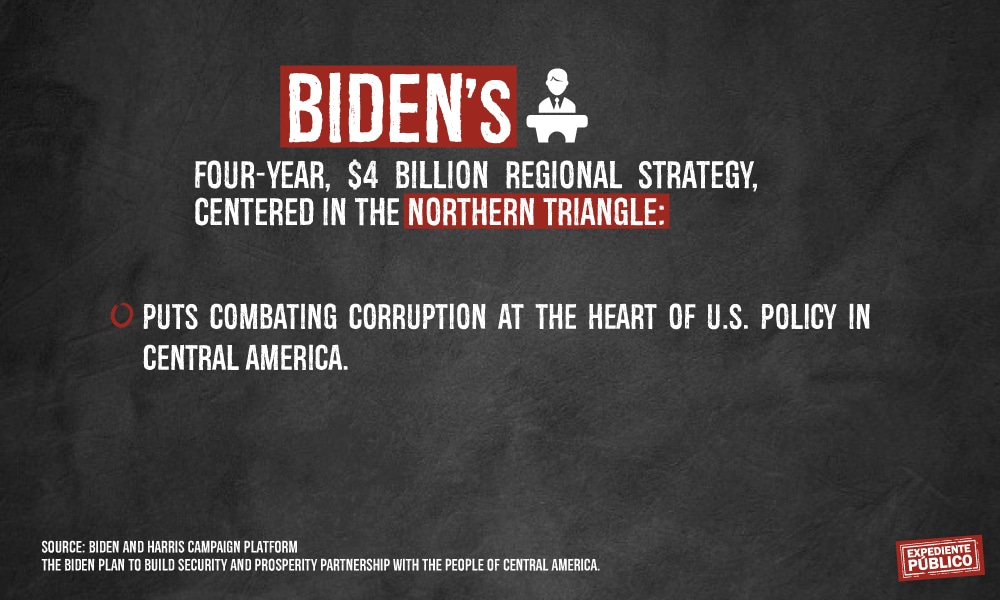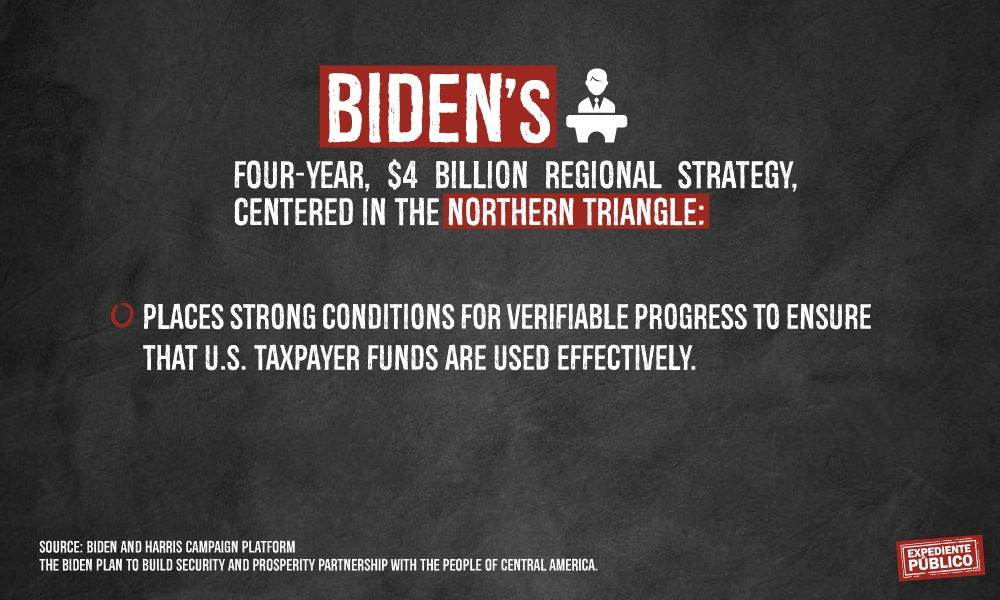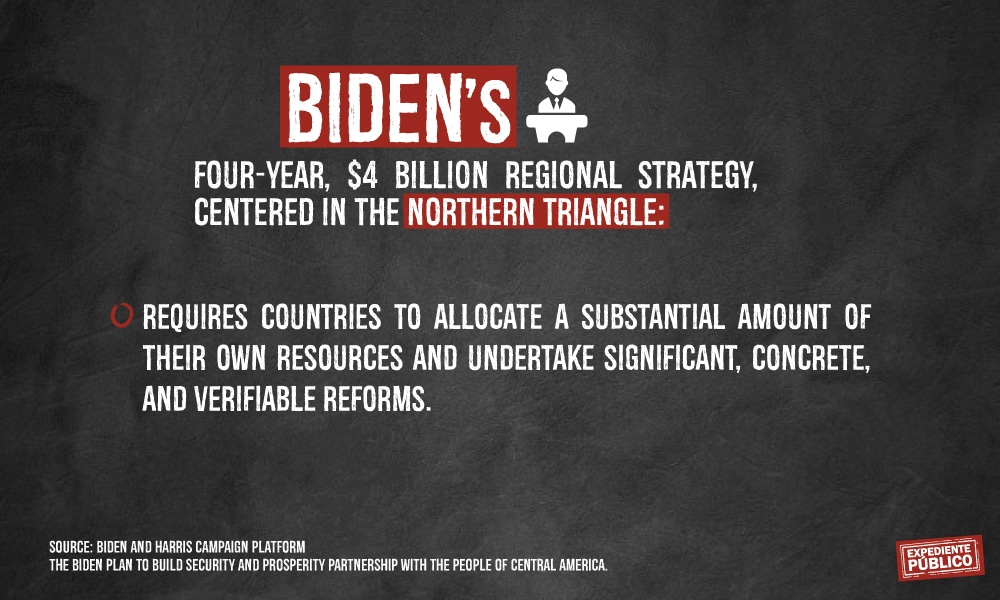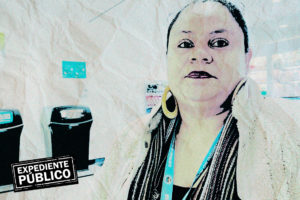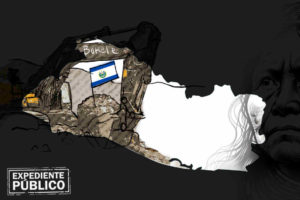On November 3rd, US voters will decide whether to resume President Donald Trump’s term or opt for a change in the White House with Democrat Joe Biden. In terms of policy toward Latin America and in particular toward Central America, a new president would bring other strategies to contain drug trafficking, authoritarianism and migration, however, the continuation of the current U.S. president would imply a considerable economic aid program, as Ryan C. Berg, a researcher at the American Enterprise Institute (AEI), a conservative think tank based in Washington DC, told Expediente Público.
As for Nicaragua, Berg maintains that the Army should be sanctioned by the United States Government for its involvement in human rights violations. Regarding Honduras, it states that «endemic corruption» would be an issue that Biden would address.
In an interview with Expediente Público, Berg points out that the Nicaraguan crisis is part of the bipartisan agenda of Congress, therefore, he does not consider it possible that a Biden administration would cool the pressure toward the Ortega-Murillo regime, nor would it happen in the case of Venezuela. In the case of the Northern Triangle, there would be notable differences with a change of government. While President Trump has prioritized the immigration issue, Biden would likely cancel many of the current administration’s policies on this matter, and would attack the root causes of migration, says the expert.
Berg is a specialist in Latin American issues and security policies, with a focus on areas such as transnational organized crime, drug trafficking, and criminal networks. He has been a consultant for the World Bank, and was awarded a Fulbright scholarship that took him to the Entrepreneur Bank in Brazil. He has a doctorate in Political Science and master’s degree in Global Governance and Diplomacy from the University of Oxford; he had previously studied Government and Theology at Georgetown University.

A few days before the US presidential elections: What does the Trump administration propose in terms of foreign policy toward Central America?
The Trump administration has conducted diplomacy in a largely transactional manner in Central America. It has pulled and withheld funding over the topic of migration and tends to view challenges in the region through the lenses of migration and security. It has signed migration compacts (so-called «safe third country agreements») with the countries of the northern triangle. The administration has done so, on occasion, at the expense of the quality of democracy; it is declining in places like El Salvador, Honduras, and Guatemala. The one place where the administration has been very strong is on Nicaragua and its slide into full-blown authoritarianism.
Recently, however, the Trump administration has shown a desire to use the U.S. International Development Finance Corporation (DFC) to spur economic growth and compete with Chinese investment and lending projects in the region.
What could change with a potential Trump re-election?
It is possible that in a second Trump administration, the economic development part of the agenda takes a more central role. I don’t think migration is going to completely disappear, especially given a potential surge in migration once COVID-19 finishes wreaking its havoc on the region’s economy. However, the administration could significantly broaden the aperture through which it views the region, which I hope it does.
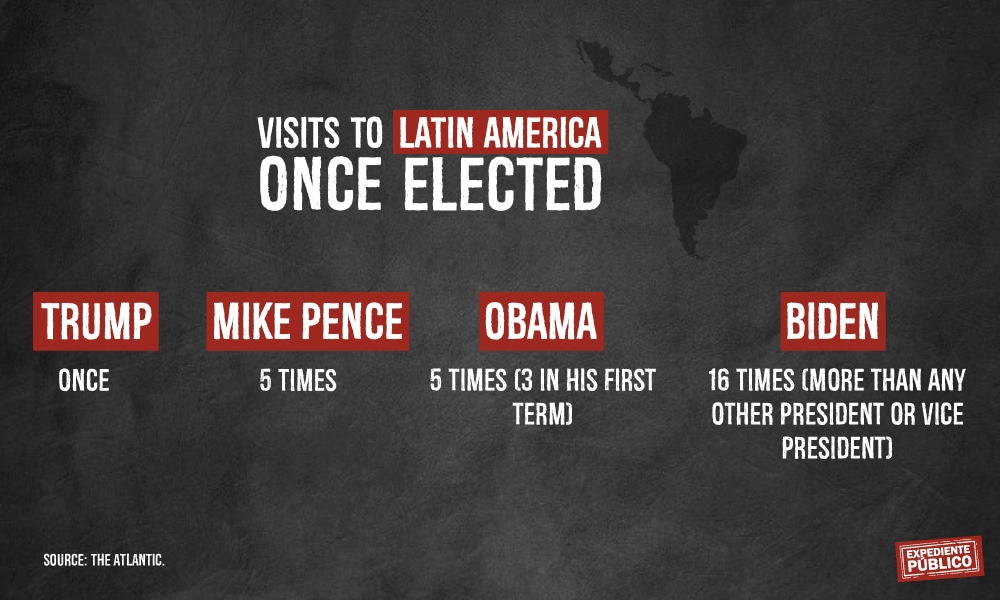
What difference would a Democratic government make in terms of the relationship with Central America? Is there something to rescue from the Trump administration or will we find ourselves in a scenario of a clean slate?
If former Vice President Biden wins the election, there are certainly things he would be wise to keep from Trump’s foreign policy toward Central America. Most importantly, Biden would be advised to maintain the highly bipartisan stance against Nicaragua’s authoritarianism. Sanctions should continue to be rolled out against Ortega, Murillo, and their many cronies, and the next administration should continue to push for a strategy of domestic changes and concessions that allow the Nicaraguan opposition to compete in a freer and fairer election (elections under Ortega will never be completely free or fair). With respect to the Northern Triangle, the Biden administration would be wise to continue the strong posture of lending and focus on economic recovery and growth that the Trump administration has begun, using the DFC as the principal vehicle to do so.

Biden said in July 2018, during an interview with a Colombian TV channel, that the Ortega regime should be internationally isolated. Do you think that a Democratic administration would actually push such an agenda against the Sandinista government?
I certainly hope so. As I said, Nicaragua is an incredibly bipartisan issue. Both parties and their members in Congress understand the nature of Ortega’s regime. They understand the fight to restore democracy in Nicaragua. And there is broad consensus that the election in November 2021 will be one the best opportunities that the Nicaraguan people have to end their current nightmare.
To get to freer and fairer elections in Nicaragua, the US will have to maintain its position on sanctions, but also to develop a more significant diplomatic component. The EU has begun to make noise on Nicaragua, passing sanctions and mentioning the future of the free trade arrangement if Ortega doesn’t offer concessions. The US should double the pressure by seeking a joint diplomatic front to confront growing domestic repression.
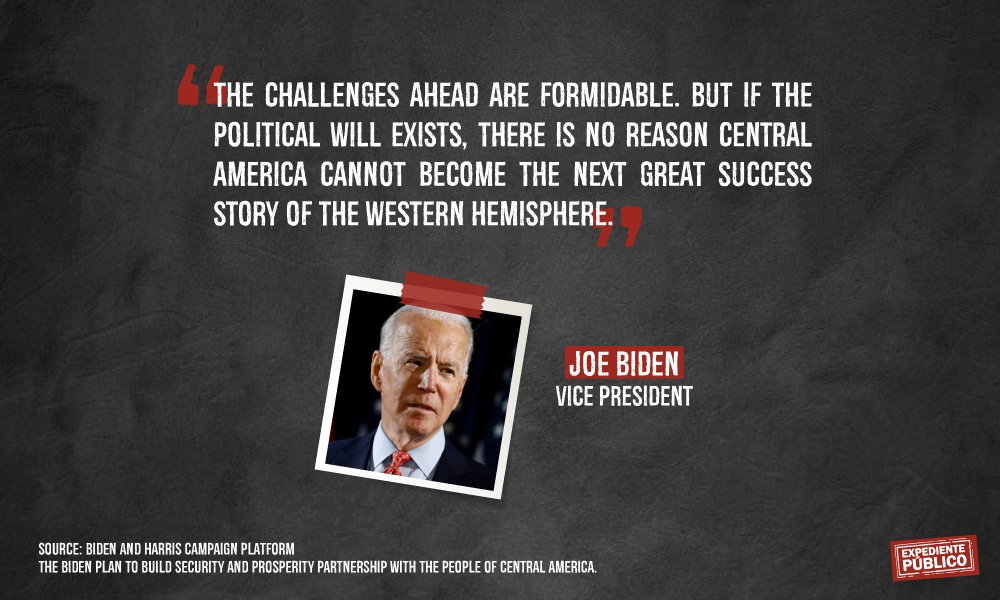
What concrete steps would be expected from a potential Democratic administration regarding migration from Central America and Central Americans currently undocumented in the United States?
I would expect the Biden administration to review and revive TPS for countries where the Trump administration ended it. The Biden administration would likely review and end the «Remain in Mexico» program started under the Trump administration. And a potential Biden administration would also likely seek to end the «safe third country agreements» with the Northern Triangle because it feels as though the agreements run counter to the rule of non-refoulement. Lastly, I imagine that the Biden administration, for those undocumented in the US already, would seek to revive the DACA program in the same manner as it existed under the Obama administration.
What options or alternatives would the Democrats propose regarding drug trafficking in Central America and violence in a context of generalized militarization of public security?
I think that there is a significant number of policy-makers in the Democratic party who would like to push US security assistance in the direction of someone like Andres Manuel Lopez Obrador — specifically, his rhetoric of «hugs, no bullets.» What this means in practice is deepening development assistance to focus on the social roots of crime and security challenges, rather than confronting violence with violence. I think this is really a half measure and not a full solution.
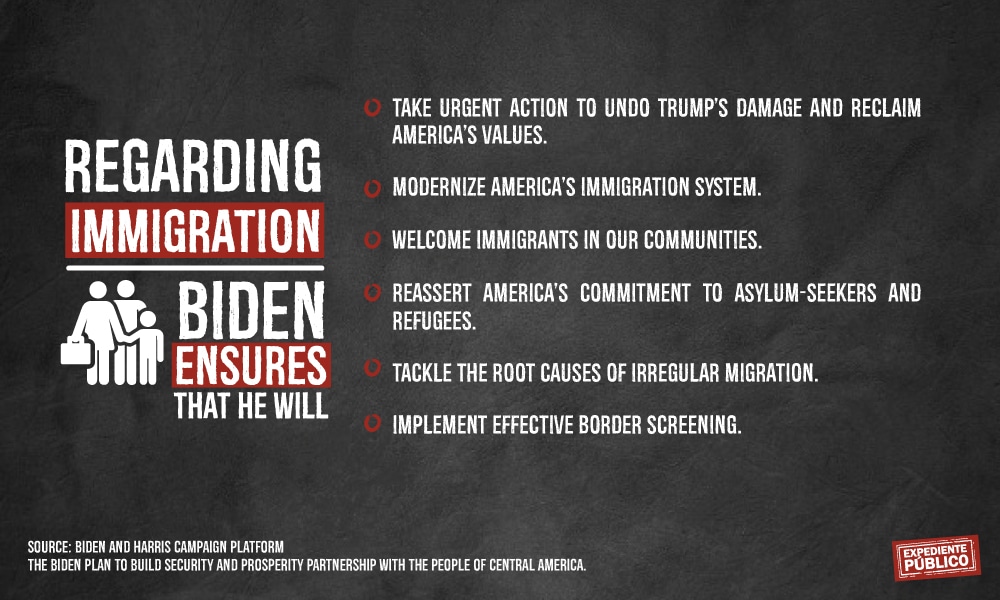
What is your analysis on the perception that a democratic government would give oxygen to the Maduro government? What options could Democrats consider regarding Venezuela, with the backdrop of a generalized perception of Venezuelans abroad that the current situation in that country is a problem that grew under the Obama administration?
Former Vice President Biden (and his running mate, Senator Kamala Harris) have both referred to the Maduro regime as a brutal dictatorship. My hope is that this sentiment is genuine and that it guides a robust position from the US against the Maduro regime.
In the Obama administration, the Maduro regime consolidated its control and engaged in unfathomable kleptocracy.; I think it is safe to say that a policy of engagement (as opposed to confrontation) did little to advance the cause of the Venezuelan opposition — neither in Venezuela nor in the world — and that engagement as a general position with the Maduro regime should be discarded. In my talks with Biden advisors, I gather that this is now an understanding shared by many Republicans and Democrats alike. It is true, Biden may be more willing to engage in negotiations over a political transition in Venezuela, and he may well slow the pace of sanctions against the regime issued by OFAC, but I don’t expect to see a massive change in the direction of US policy toward this criminal regime in Caracas.
What good lessons could Nicaragua’s opposition learn from the Venezuelan and what mistakes should it avoid?
The Nicaraguan opposition must take the lesson about the importance of working in unity, contrary to the scenario in Venezuela in which the division has prevailed among opponents of the Maduro regime. They must also be prepared for extra–territorial interventions from powers like China and Russia who want to see Ortega continue in Nicaragua. The same happened in Venezuela at many critical moments. The last lesson to take is the power of the street. Without unity and street mobilization, outside pressure (from the US and EU) is only so powerful, but probably not potent enough on its own to dislodge a consolidated dictatorship like Nicaragua’s.
There is a sector of the Nicaraguan opposition that wants to avoid sanctions against officers of the Nicaraguan Army at all costs. The argument of this sector is basically that the army can be a stabilizing factor once the transition begins. Taking the Venezuelan experience as a reference, what is your opinion on this point regarding the Nicaraguan Army?
I think that is imperative for the US to sanction the Nicaraguan Army — as an institution — much as it has done with the National Police. The Army has been complicit in serious human rights abuses, as has been found by multiple human rights commissions. So they deserve to be sanctioned and their pensions (IPSM), which have significant exposure to US investments and markets, could be used as leverage. Further, sanctioning the army could ensure that the institution loses confidence in Ortega and his leadership, such that they begin to work toward concessions that could bring freer and fairer elections. If sanctioned as an institution, the military would know that if it is to keep any of its privileges, the future lies in the hands of a democratic transition, and the US should be explicit about the fact that sanctions would be lifted in the event that the military worked toward electoral reform and other concessions, especially those related to the internal security apparatus and the ability for the opposition to organize freely and without duress.
In the case of Honduras, the concern prevails as to whether the United States’ tolerance to structural corruption in that country, which has the president of Honduras himself as one of its main references, would continue.
I would expect a potential Biden administration to care more about corruption and the quality of democratic governance in Central America, specifically on the issue of democratic backsliding in places like Honduras. With a less transactional approach, and a diminution in importance for migration issues, I think a potential Biden administration would speak out on the endemic corruption in Honduras, especially given the race to succeed JOH is now on.
In the case of Honduras, the concern prevails as to whether the United States’ tolerance to structural corruption in that country, which has the president of Honduras himself as one of its main references, would continue.
I would expect a potential Biden administration to care more about corruption and the quality of democratic governance in Central America, specifically on the issue of democratic backsliding in places like Honduras. With a less transactional approach, and a diminution in importance for migration issues, I think a potential Biden administration would speak out on the endemic corruption in Honduras, especially given the race to succeed JOH is now on.
Honduras has been left without a US Ambassador during the Trump administration. How do you interpret this, what change could there be with a potential Trump administration?
I interpret this to mean that the administration is not particularly concerned about lacking representation in Tegucigalpa. It feels as though the leverage it has in the bilateral relationship is sufficient to provide it with the means to negotiate deals and implement its agenda for the region.


